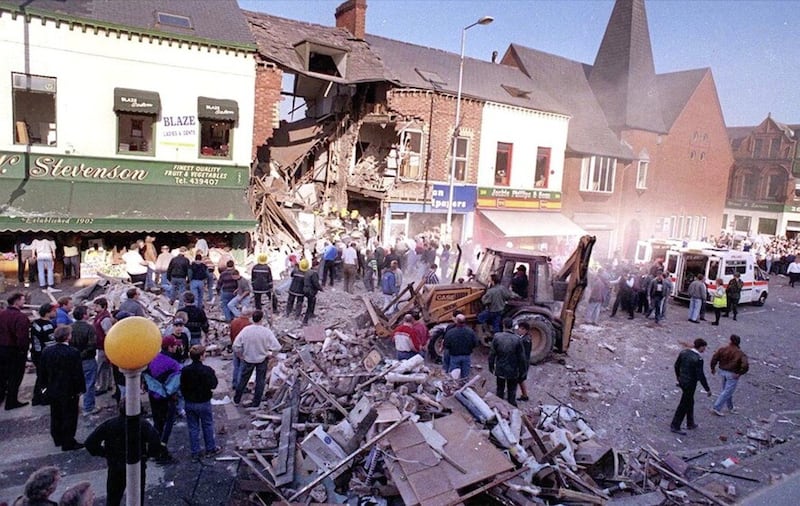Former loyalist paramilitary leader Johnny Adair allegedly made plans for “mass murder” in response to the deadly Shankill bombing, the Court of Appeal heard on Tuesday.
Lawyers for the son of a Catholic council worker shot dead following the blast claimed Adair and his paramilitary unit were not kept under proper surveillance.
Nine people were killed and dozens more injured when the IRA bombed Frizzell’s fish shop on the Shankill Road in west Belfast in October 1993.
Days later, James Cameron, 54, and his colleague Mark Rodgers, 28, were gunned down by the Ulster Freedom Fighters (UFF) at their work depot on Kennedy Way in the west of the city in October 1993.

Amid suspected security force involvement with the notorious loyalist unit, Colm Cameron has challenged the independence of a PSNI Legacy Investigation Branch probe into his father’s killing.
In May last year the High Court found no compelling new evidence of collusion in the double sectarian murder.
Mr Cameron is appealing the ruling that a legal test for establishing any failure to properly investigate the shootings was not met.
Judges were told the killings were carried out amid heightened tensions over the Shankill bombing.
Hugh Southey KC, for Mr Cameron, referred to a book on Adair which contained allegations that the UFF ‘C’ Company he commanded at the time was involved in the attack on the council workers.
“There had been a threat of retaliation (for the bombing),” the barrister said.

“One of the specific threats reported (in the book) is that before the killings Mr Adair… is alleged to have told police that he was going to plan mass murder.
“There was clearly contemporaneous reporting which indicated that police believed Mr Adair was a key figure in the UFF.”
Mr Southey submitted: “That raises a question, why action doesn’t appear to have been taken to monitor Mr Adair and C Company.”
The court heard that the Kennedy Way depot was an obvious potential target because of its Catholic workforce.
Issues were raised about why a vehicle checkpoint was stood down an hour before the gunmen arrived without any proper explanation, and the apparent failure to disrupt ‘C’ Company when retaliation for the Shankill bomb was likely.
In 1995 Adair, nicknamed “Mad Dog”, was convicted of directing terrorism and sentenced to 16 years in prison, only to be released early as part of the Good Friday Agreement.
An internal power struggle eventually led to him being ousted and expelled from the paramilitary organisation in 2002.
Further concerns were raised that the gun used to kill the council workers was part of an arsenal of rifles allegedly smuggled into Northern Ireland from Lebanon by British agent Brian Nelson.
In 2012 the now defunct Historical Enquiries Team (HET) carried out a review into the killings, but no report was provided to Mr Cameron’s family before the investigation branch disbanded.
Mr Southey stressed his client believes a specific threat existed against the depot where the attack took place.
“There may well be an innocent explanation for the withdrawal of the checkpoint, but the point is whether there is sufficient to require that to be investigated,” he added.
Responding to the challenge, police set out how two people were charged, convicted and jailed in connection to the attack - including a man who admitted both murders and UFF membership.
A senior PSNI detective also stated that during the original investigation 60 suspects were interviewed, 16 arrests made and fingerprints checked against 78 people believed to be associated with the UFF.
He confirmed a telephone warning which referred to “Catholic depots” was issued to Belfast City Council on the day before the attack.
Subsequent intelligence naming UFF members involved resulted in a series of arrests.
Central to the case is an alleged failure to carry out a probe which complied with Article 2 duties which only came into force in October 2000.
Under the so-called ‘Brecknell’ legal test, fresh plausible or credible information about perpetrators was required to establish any retrospective investigative obligations over murders carried out seven years prior to that date.
Reserving judgment in the appeal, Lady Chief Justice Dame Siobhan Keegan said: “There are obviously matters we need to go away and think about.”



